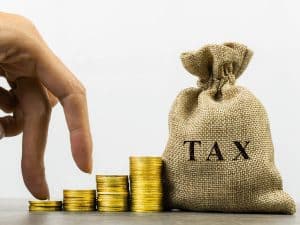There are measures that can be observed to minimize the tax liabilities within an organization or business hence enhance the saving levels. Preparations for minimizing taxes in South Africa have various categories of opportunities for taxpayers, provided that one efficiently researches the tax laws and available advantages.
Be it a working-class adult seeking to maximize his/her tax credit or a business owner aspiring to lower his/her corporate tax, this ultimate tax guidebook is a one-stop resource for all your tax efficiency needs.
Understanding South African Tax System

South Africa has a combination of source and residence based tax system specifically in the area of income tax. In simple terms this means that those who are classified as residents are liable for tax on wages earned all over the world, on the other hand non-residents are taxable only on their income earned within the borders of South Africa.
SARS is responsible for the implementation of tax legislations, revenue collection and enforcement in South Africa. Major taxes are income tax for individual and company, value added tax and finally the capital gains tax.
It is thus important that one is fully aware of these taxes and their applicability on him or her for efficient tax planning. Working with a good tax consultant can also be useful for particular legislation and inducements and to verify that you are adhering to the laws to the letter.
Personal Income Tax Strategies
The other common and perhaps the most efficient way of minimizing personal income tax is by trying to get as many allowable deductions as possible. All these go a long way in reducing your taxable income; that is; retirement fund contributions, medical expenses, and donations to charity organizations that have been approved by the relevant authority.
People should also be able to use Tax-Free Savings Accounts (TFSAs), this gives room for tax-free appreciation on investment. Other tips that can be used in increasing your tax savings includes using the annual tax rebates and other knowledge that may be attained on the tax thresholds and brackets.
Taxpayers need to keep proper records of their operations and seek professional advice to fully take advantage of all the legal tax deductions.
Corporate Tax Savings
Businesses also hold the following measures that they adopt to reduce amount of tax that they pay; Costs required to carry out business processes, for instance, employees’ wages, landlord charges or electricity payments, can be subtracted from the gross income.
Likewise, firms can also seek capital allowances for capital facilities on machinery and buildings besides vehicles to decrease the taxable profit.
The second important thing that may help businesses to be compliant is the fulfillment of R&D projects, where taxes may be also incentived. By doing so and keeping records of such activities, possible risks could be avoided, as well as, the greatest amount of savings achieved.
Utilizing Tax Incentives and Benefits
This paper discusses the various tax incentives available to investors in the South Africa by the country’s government. It also means focusing on those incentives may help to receive considerable amounts of tax deductions.
It is to note that everyone, either an individual or companies, has certain incentives to go for the investments like the Section 12J Venture Capital Company tax relief whereby the government wishes to encourage investment in SMEs in the equity shares with certain restrictions.
Knowledge of the sundry deductions, rebates, and incentives is likely to assist the taxpayers to make better financial decisions that will improve their taxation experience.
Understanding Section 12J
Section 12J of South African Income Tax Act grants a tax allowance to the investors who invest their money in Venture Capital Companies. This deduction also applies to SME and their expansion because they play a critical role in the development of any economy.
Their losses can amount to 100 percent of their investment, thus having a direct impact on the taxable income. To benefit, make sure that the VCC that you invest in is in line with the set SARS regulation. As well as encouraging the development of SMEs and others, this incentive can supply a massive regime of tax outcomes, thus it has benefits for all parties interested.
Research and Development Incentives
R&D activities are important for innovations and therefore help in the long term growth of any business. There is also provision of refund and allowances that the South African government will provide industries to undertake research and development activities so that it can be relieved from taxes.
Business can now deduct an amount of up to 150% of the expenditure incurred on R&D. The amount can considerably bring down the tax burden of the business. These incentives seek to create awareness of innovation as well as helping establishments to produce goods and services that meet the needs of consumers.
It is crucial to document all processes and meet the requirements of SARS to the fullest extent to make the most of these stimuli and avoid possible traps.



